Driving and Brain Injury by Jim Sinclair ( MBIA member)
In the province of Manitoba, doctors are required by law and their own professional code of ethics to report to the Manitoba Public Insurance’s Medical Compliance and Assessments Division any person whom they believe has a medical condition that may affect their ability to safely operate a motor vehicle. This results in many (but not all) brain injury survivors having their situation reported to Manitoba Public Insurance. Once they receive such a report The Medical Compliance and Assessment Section may:
- request further medical reports
- request that the individual undergo driver’s testing
- refer the individual to the DRIVER’S ASSESSMENT AND MANAGEMENT PROGRAM (DAMP) at the Health Sciences Centre or to MPI’s Driveable program
- place restrictions on an individual’s driver’s license
- reclassify the individual’s license to a lower classification
- suspend the individual’s license UNTIL FURTHER INFORMATION IS RECEIVED
Although it may seem to be the case suspension of a driver’s license is not automatic following an acquired brain injury . The course of action taken is dependent upon each individual’s unique medical situation.
The process of once again earning our driver’s license is as unique to each individual as the effects of their event are to each individual survivor.
Driving is the activity which requires the greatest use of all our multitasking abilities.
It requires our complete and total focus and concentration at the same time as requiring a sharp awareness of everything that is happening around us. It requires rapid decisions and quick physical reactions.
In our culture, driving is seen as a rite of passage inherent in the maturation process. Older adolescents view obtaining their Driver’s License at age 16 almost as a God-given right. As parents, we know that as our children approach 16 years of age we will have to come to terms with their ultimately driving and their expectation that they have a right to use the family car. Driving is one of the things we take for granted; or at least until we lose the right to drive.
After earning back my license, driving was no longer in any way the way it used to be. I now found driving to be very hard work; requiring me to focus completely every second on my driving. For most of the previous 40 years I had been driving primarily by intuition and instinct and rarely gave any thought to my actual driving. It used to be a regular occurrence that I would be headed to a location somewhere along my daily route downtown to work and I would find myself downtown before I realized that I had gone miles past my destination. After my brain injury I found that driving required much more intense concentration than I would have believed. I continued to drive for three years until June 2007, when after a series of incidents I started to question my driving abilities; lost my confidence; and quite driving altogether. I came to believe that at that particular point in time my focus and concentration were not what it needed to be to continue driving.
I didn’t drive for the next two years while I worked hard on my concentration skills trying to insure that I was always only thinking about the immediate task at hand (staying in the moment). Every six months after that I re-evaluated my decision by going for a very short drive. My first two times re-evaluating my decision I decided within minutes that I still wasn’t ready. After two years of not driving I chose to return to driving. I have now been back driving five years and my love of driving has finally returned. I have become very comfortable with staying completely focused (staying in the moment).
When brain injury survivors indicate that they are considering a return to driving and ask my advice on how to go about getting their license back my advice is to:
1) begin with a self analysis
a- Are you certain that you want to drive?
b- What were the problems you had that lead to a recommendation that you be suspended and have you recovered from these issues?
c- Do you recognize that you may have forgotten the skills necessary to drive and are you prepared to re-learn those skills?
2) How do your family members feel about you driving again?
3) Discuss the issue with your physician and if you are still determined to proceed request that your physician refer you to the DAMP program or Driveable program for an assessment.
4) If you are successful in receiving authorization to proceed consult other survivors regarding how best to prepare for the written exam.
5) When you pass the written exam ask if you are entitled to a permit so that you can take some refresher driving lessons.
6) just as you MAY have had to re-learn to walk by taking small steps slowly; approach your return to driving with this same small steps slowly attitude.
7) As with all areas of our rehabilitation this is a slow process which will require months rather than weeks.
